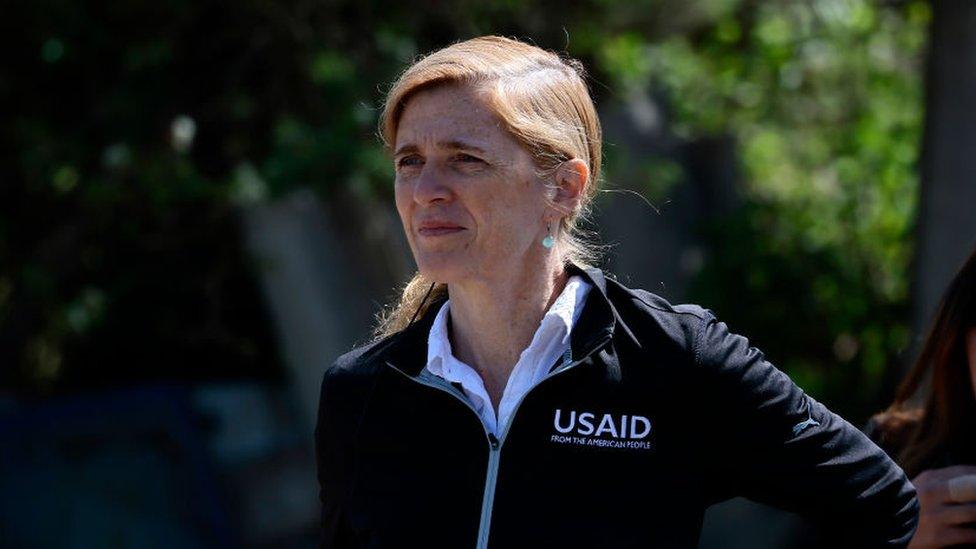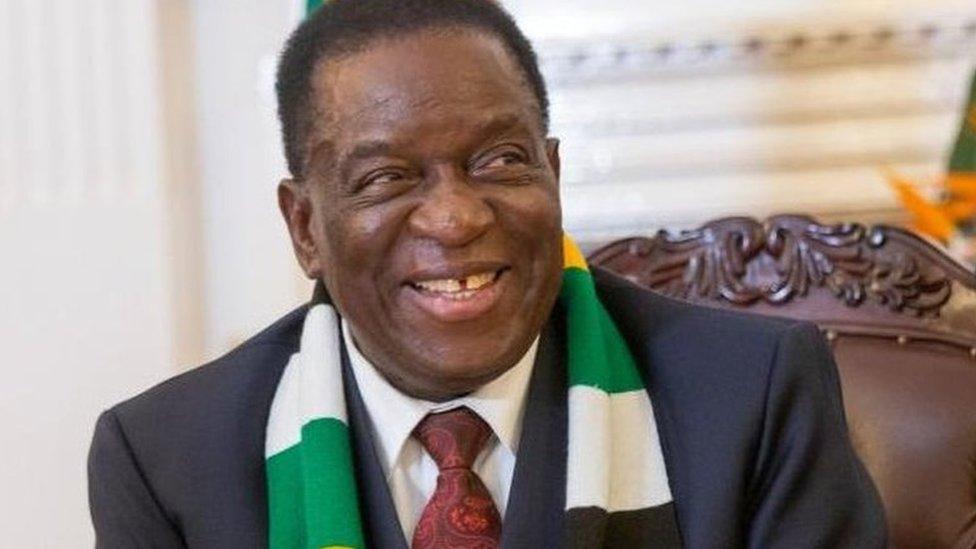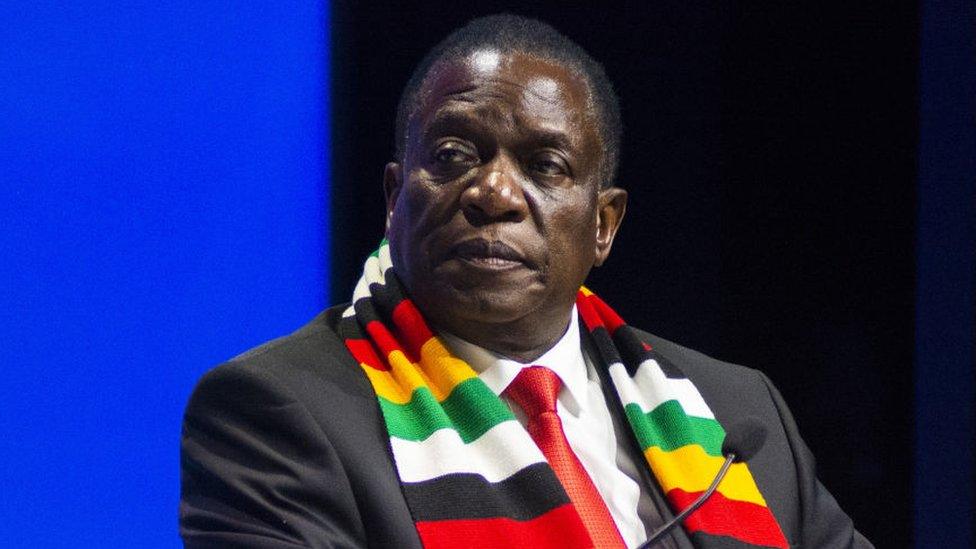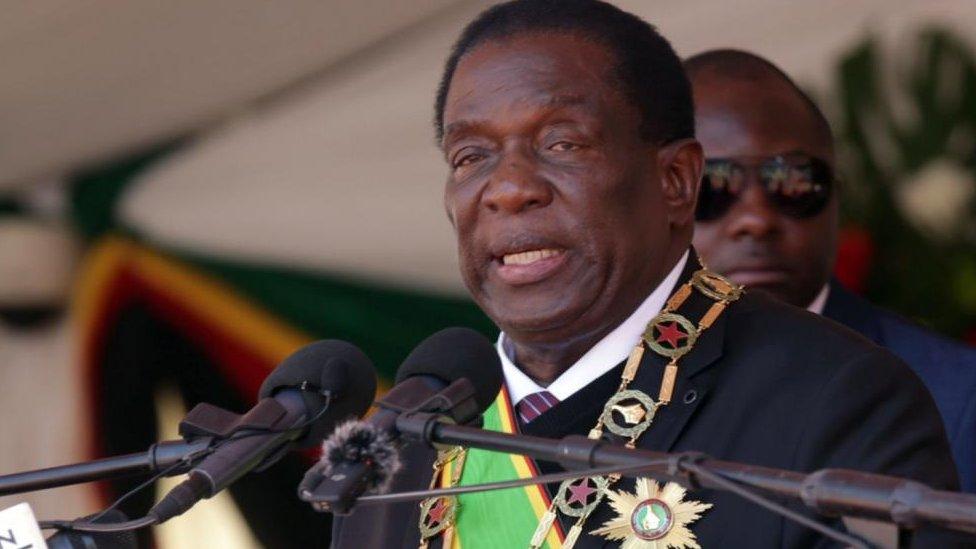Zimbabwe: US condemns deportation of aid workers
- Published

USAID's Samantha Power said Zimbabwe's commitment to democracy was hollow
The US has accused Zimbabwe of harassing, detaining and deporting several of its nationals who were in the country as aid workers.
The US Agency for International Development (USAID) said government officials and contractors had been "verbally and physically" intimidated.
They were there to "support civic participation, democratic institutions and human rights", the agency added.
But Zimbabwe's commitment to democratic reform was "hollow", it said.
The Zimbabwean government has not yet commented on USAID's allegations.
On Monday, the US announced fresh sanctions on Zimbabwe's President Emmerson Mnangagwa and other senior government officials, whom it accuses of corruption and human rights abuses.
These replaced existing sanctions imposed two decades ago.
A spokesperson for President Mnangagwa condemned the sanctions as "hostile" actions and accused the US government of "gratuitous slander".
In a statement, external, USAID's administrator, Samantha Power, said that some of its members had been subjected to "overnight detention, transportation in unsafe conditions, prolonged interrogation, seizure of and intrusion into personal electronic equipment".
Ms Power went on to say that this event followed other "serious incidents" over the past two years, in which US government officials and citizens were subjected to "harassment and improper treatment" from Zimbabwean authorities.
In a separate statement, Matthew Miller, a spokesman for the US State Department said that the aid team were legally admitted to Zimbabwe to "support the government of Zimbabwe's expressed commitment to democratic reform", something Ms Power called a "hollow" commitment.
Ms Power's statement concluded by saying that USAID would "continue to robustly support civil society, human rights defenders, and independent media" in the country but would "not hesitate to take additional measures to hold accountable those who deny Zimbabweans fundamental freedoms and good governance".
USAID says its work in Zimbabwe is to help "strengthen health services, increase security, support economic resilience and promote democratic governance".
Related topics
- Published7 March 2024

- Published5 March 2024

- Published4 February 2024
